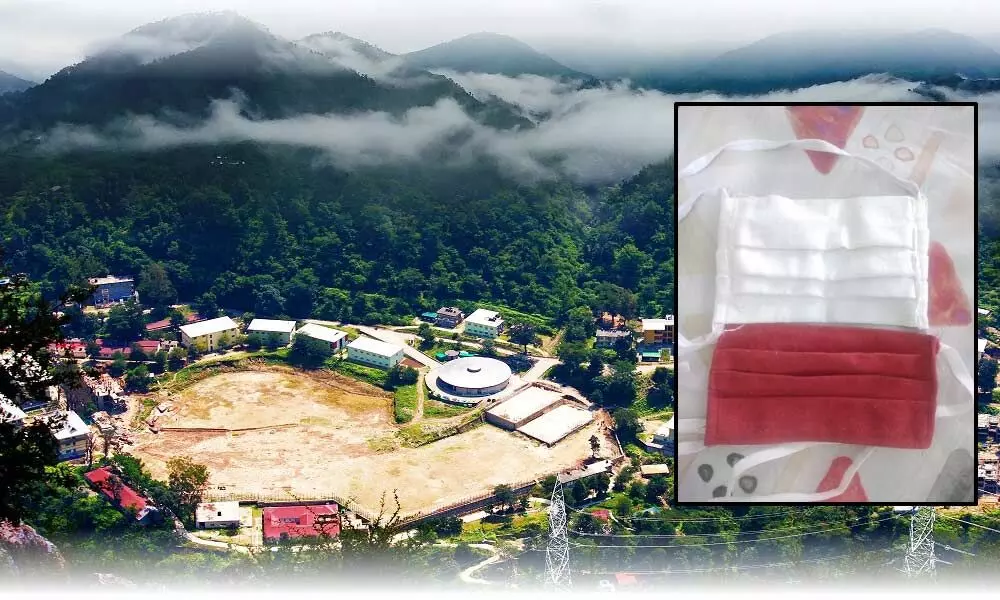IIT Mandi develops material fit for reusable PPE, masks
The ananoknife’-modified fabrics demonstrated excellent antibacterial activity even after 60 cycles of washing
image for illustrative purpose

Mandi: Researchers at the Indian Institute of Technology Mandi have developed a novel virus-filtering, self-cleaning and antibacterial material that can be used to make and reuse face masks and other PPE equipment.
The new masks can kill microbes, and are solar light-cleanable. It can also filter more than 96 per cent of particles that are in the size range of the Covid Virus (120 nanometres), without compromising on the breathability of the fabric, and could thus be a powerful tool to prevent the spread of coronavirus and other microbial infections, according to the study, published in the journal Applied Materials and Interfaces.
The researchers have developed prototypes of a 4-layered face mask using the molybdenum sulphide (MoS2) modified fabric. The team used a material that is hundred thousand times smaller than the width of the human hair to confer antimicrobial properties to polycotton fabric. They incorporated nanometre sized sheets of MoS2 at the sharp edges and corners, which act as tiny knives that pierce bacterial and viral membranes, thus killing them.
"Keeping the urgency of the pandemic situation and cost-effectiveness in mind, we have developed a strategy to repurpose existing PPEs, especially face masks, by providing an antimicrobial coating to these protective clothing/textiles," said lead researcher Amit Jaiswal, Assistant Professor, at the varsity's School of Basic Sciences.
"The ananoknife'-modified fabrics demonstrated excellent antibacterial activity even after 60 cycles of washing," Jaiswal said.
It also makes this an excellent way to reuse masks and reduce biological waste generation. The reusability of the fabric will also enable it to be integrated with homemade masks, Jaiswal said.
In addition, when exposed to light MoS2exhibits photothermal properties, that is, it absorbs solar light and converts it into heat, which kills the microbes. "Within 5 minutes of solar irradiation, all the MoS2-modified fabrics showed 100 per cent killing of both Escherichia coli and Staphylococcus aureus," said the researchers in the study.

